Agriculture & Environment
Mak Unveils Recipes & Products for People Living with HIV/AIDS
Published
4 years agoon
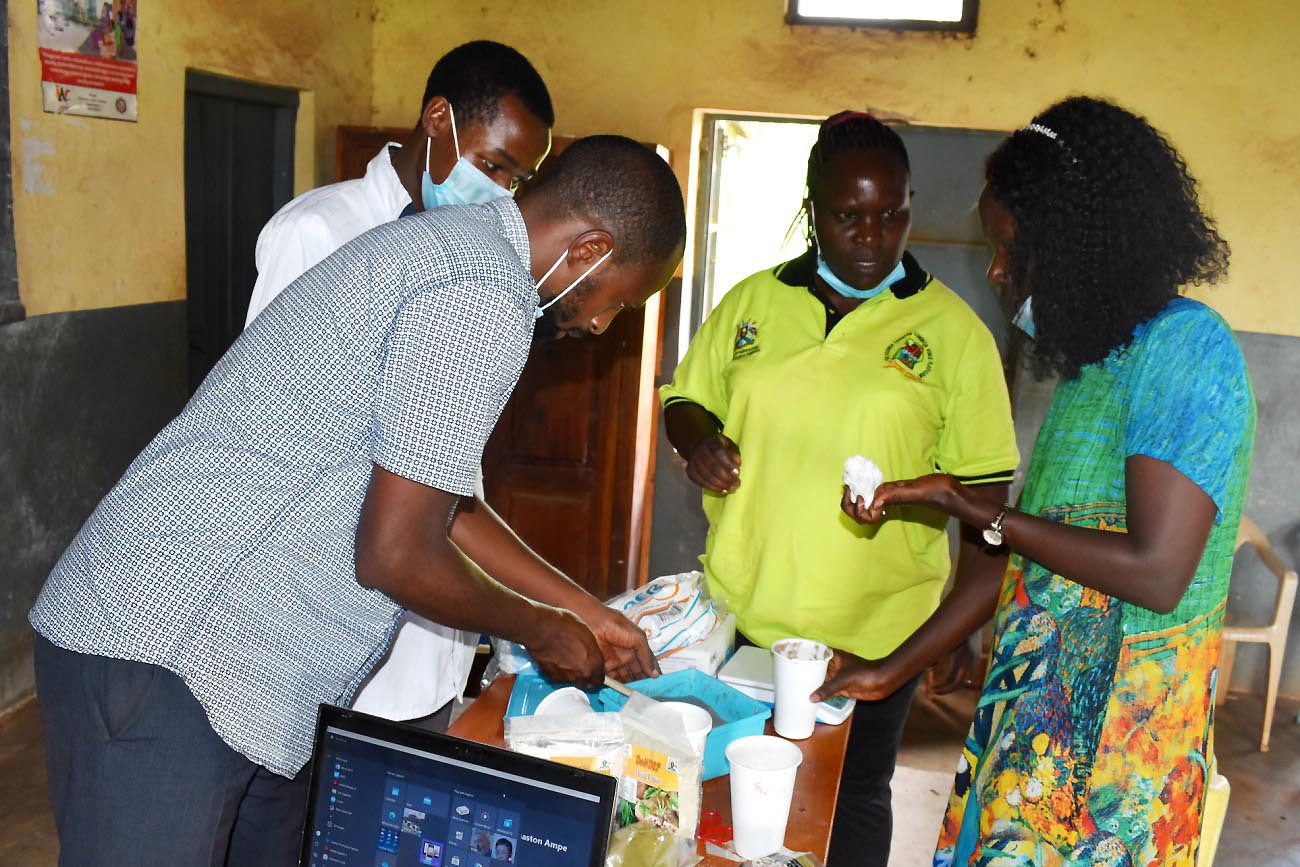
By Jane Anyango
Human Immunodeficiency Virus (HIV) is a global pandemic that is currently affecting 3.7 million people worldwide of which 70% are found in sub-Saharan Africa.
Uganda continues to suffer from the scourge of HIV with the current prevalence of 7%. Healthcare of people living with HIV/AIDS in Uganda is constrained by poor nutrition with estimates of 25% suffering from malnutrition.
A team of researchers led by Dr. Agnes Nabubuya from the Department of Food Technology and Human Nutrition in October 2020 embarked on the study titled, “Development of Nutrient-dense Recipes and Products from Underutilized crops to alleviate Malnutrition among HIV/AIDS Infected persons in Western Uganda (DoNDRP)”. The study was fully funded by the Makerere University Research and Innovations Fund (Mak-RIF).
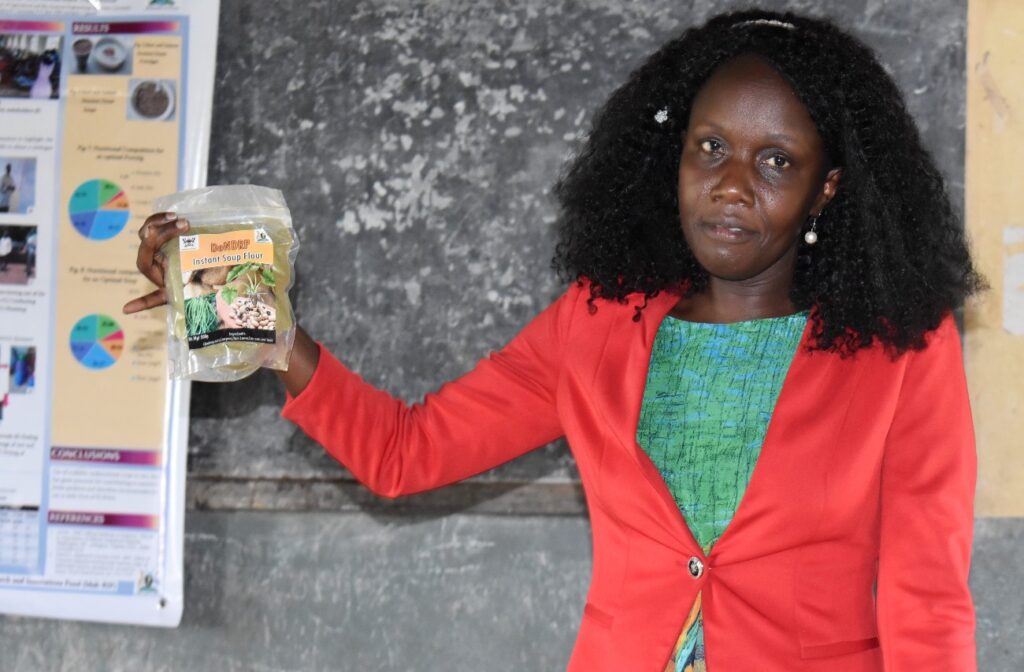
Other members on the research team are Paddy Ainebyona, Dr. Robert Mugabi, Dr. Ivan Muzira Mukisa from the Department of Food Technology and Human Nutrition and Dr. Immaculate Nakalembe from the College of Veterinary Medicine, Animal Resources and Biosecurity (CoVAB).
On 9th October, 2021 the research team unveiled four formulations of the neglected crops namely: Raw soup products, Instant soups, Raw porridge products and Instant porridge at Kigorobya sub-County. The Raw and Instant Nutrient-Dense porridge and soups were developed from neglected crops such as yam and yam leaves, climbing nuts, millet and cowpeas among others.
The nutritional composition for an optimal porridge is Proteins (20.4%), Crude fibre (13.26%) Carbohydrates (42.21%), Iron (26.78mg/l), Zinc (42.75 mg/l0 while the nutritional composition for an optimal soup is Proteins (25.69%), Crude fibre (20.53%), Carbohydrates (36.27%) Iron (23.14 mg/l) and Zinc (38.92mg/l).
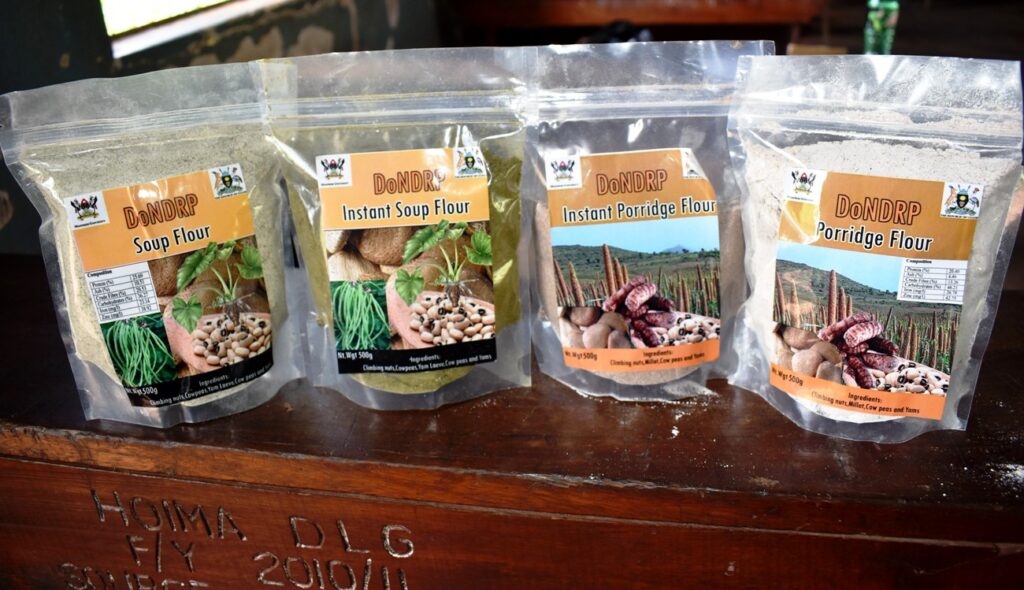
These products were subjected to an assessment by the study community during the research dissemination workshop held in Kigorobya sub-County Community Hall in Hoima district.
The dissemination workshop brought together about 40 participants including Chairpersons of the Local Council I, Village Health Teams, farmers’ leaders, Chairpersons of cooperatives, Parish Chiefs, District production and technical staff and the representative of the Chief Administrative Officer Hoima, and people living with HIV/AIDS among others.
The Principal Investigator (PI) Dr. Agnes Nabubuya said, the project target was to carry out an inventory into the underutilized crops and develop a technology to process the selected crops and in addition, generate recipes for preparation of nutrient-dense meals and formulations for products like instant porridge flours and also, to train health facility workers and women from selected communities on using the developed recipes to make nutrient dense foods.
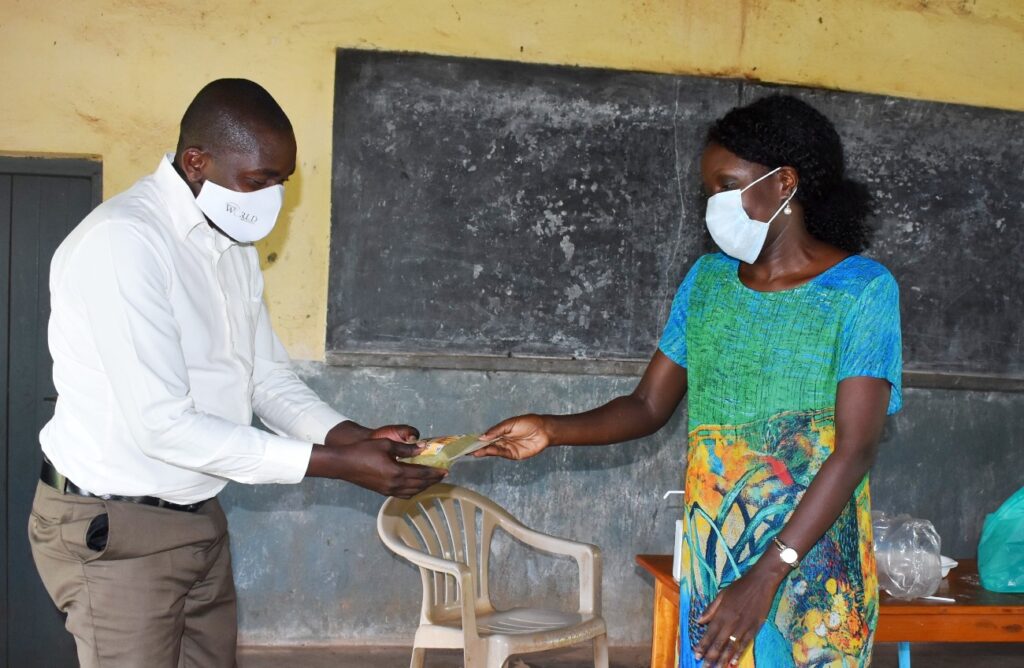
Dr. Nabubuya said they chose Hoima district and Kigorobya sub-County where an inventory of crops was done from farmers and other stakeholders from which mentioned underutilized crops were selected and preference made by farmers from the crops selected by the study team.
“These crops were later taken to the laboratory and analyzed for the nutrients, anti-nutrients, minerals and other properties. We were also able to do functional properties and from which we were able to develop nutrient-dense vegetable soups and porridge which were both raw and instant products”, the PI reported.
Dr. Nabubuya said the study team was back in Kigorobya to disseminate the information that was produced in the laboratory and the analysis. Besides bringing back the information, the researchers were also in Kigorobya to showcase the products made, prepare them for the targeted people so as to get feedback.
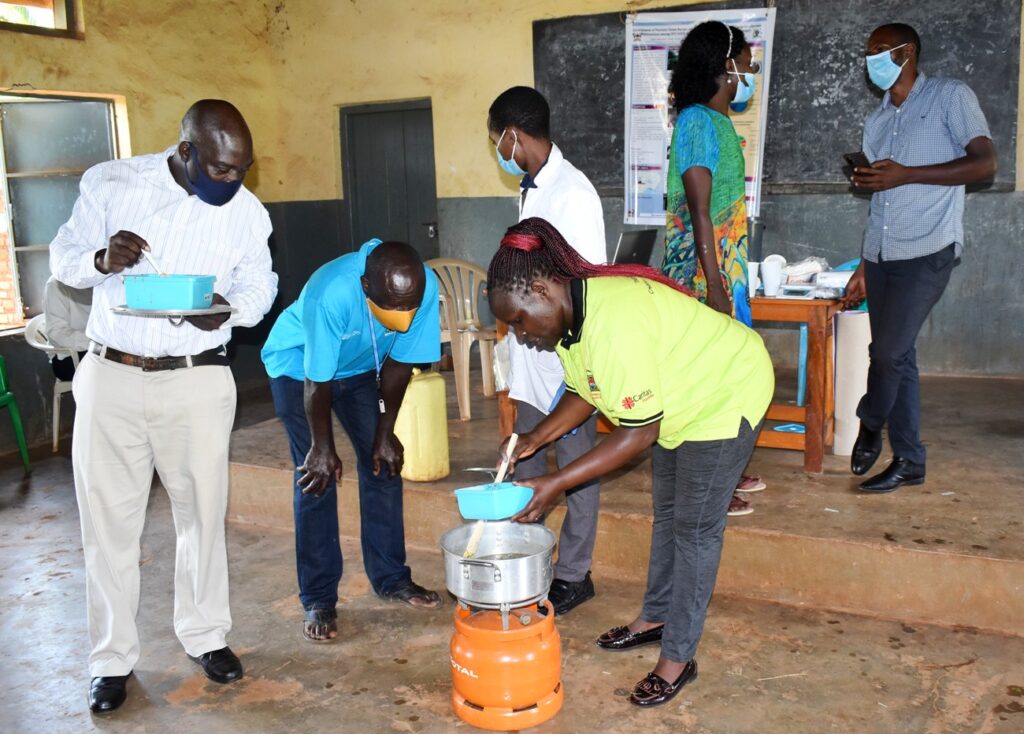
The PI said the project along the way brought on board one undergraduate and a masters student who will write a project report and publication on the works.
She said the project mainly focused on people living with HIV/AIDS because of the high level of malnutrition but the products can also be utilized by the whole population because they are nutrient-dense and acceptable to the people.
“This project has come to an end but we are hoping to apply for an extension so that we can be able to come and train the participants on how to produce the products and also monitor the nutritional effects on them”, the PI said.
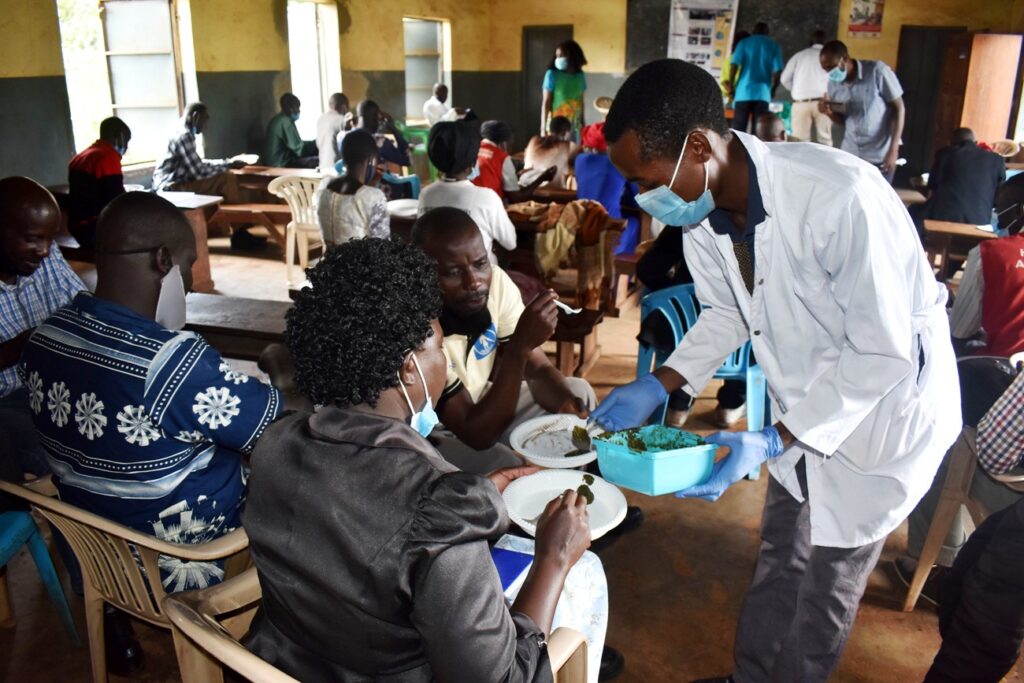
Mr. Paddy Ainebyona an MSc student of Agricultural Engineering on the project reported that data on neglected crops was collected using questionnaires to highlight the underutilized crops and performing community transect walks to obtain a catalogue of these crops.
Ainebyona also said all study materials were prepared and analyzed using standard analysis protocols.
“We looked at underutilized crops that is in terms of availability and consumption. We came up with a list of 39 underutilized crops and categorized them in descending order starting with one which is liked most and came up with a list of 7 which included pumpkin leaves, yam and yam leaves, millet and climbing nut.
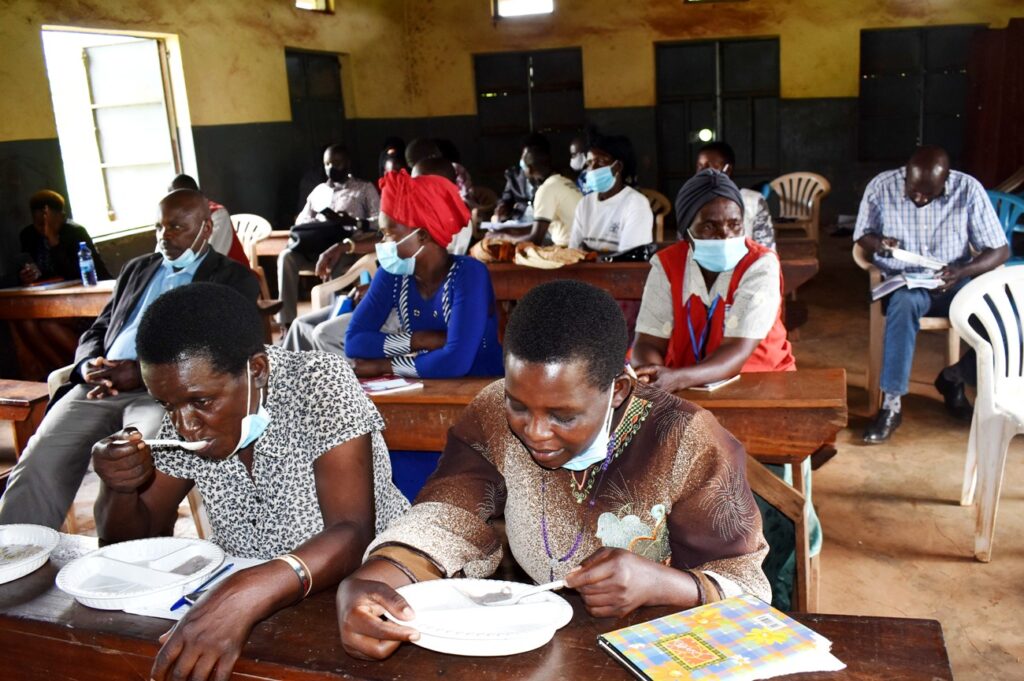
All crops were collected from Kigorobya sub-County, taken to Makarere University laboratories following standard operating procedures including peeling, slicing, drying but also for the leaves we had to do blanching to stop any chemical reactions, slice and assemble them for drying.
We then prepared them and turned them into flours for shelf stability and started actual activity of product development of porridge and soups and later on, decided to turn these flours into instant products”, Mr. Ainebyona explained.
Ainebyona said the products were taken into other processes like standard formulation, sensory evaluation. He said, in the current economic situation, instant products are desired because they are easy to prepare for people who do not have time.
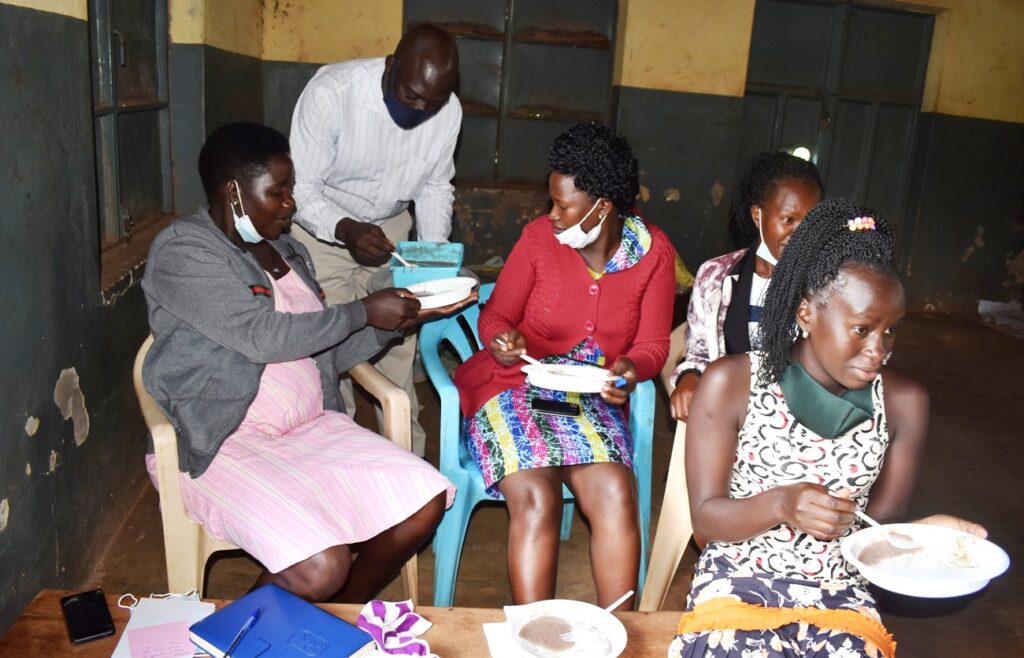
Study community representatives endorse the products as good and important
The sub-County Chief Kigorobya, Mr. Mwesiga Rwamukaga Steven described the project as wonderful and a blessing to the community.
“The number of people living with HIV/AID is increasing with new infections among the teenagers. The nutrition status of our people here is not that good and we have many children who are malnourished
The items used in preparing these supplements are within our locality and have not been taken as being of value. But now, we have seen that they have value and we need to embrace them and strengthen our community capacity so that they can prepare them locally”, the sub-County Chief said.
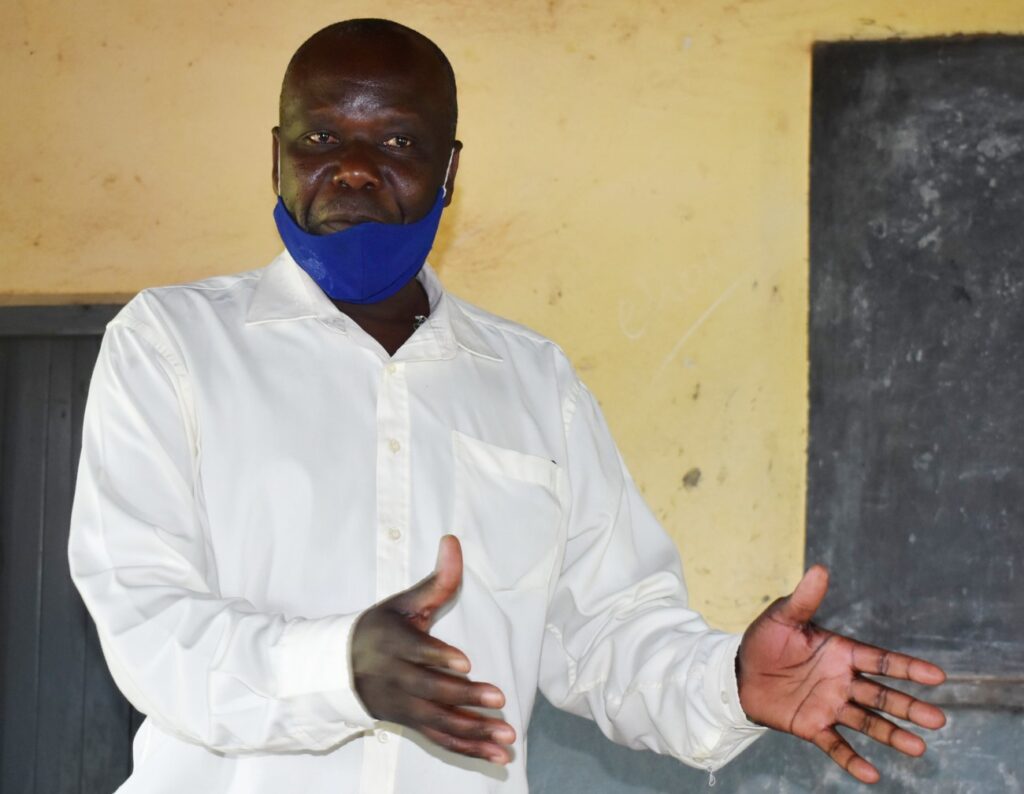
The Chairperson Local Council III Kigorobya sub-County Mr. Sajjabi Nickolas thanked the people of Kigorobya for participating in the study and turning up in large numbers
“I thank Makerere University staff and students for coming to our community to sensitise the people about the available important foods. We have tasted the porridge and soups and they are very good. We request that you organize more of such forums so that the local people acquire more knowledge and skills about feeding the sick”, Mr. Sajjabi said
Chairperson Farmer’s Management Committee, Kigorobya Cooperative Savings, Mr. Bainomugisa Godfrey thanked Makerere University researchers for processing food supplements from the community neglected crops.
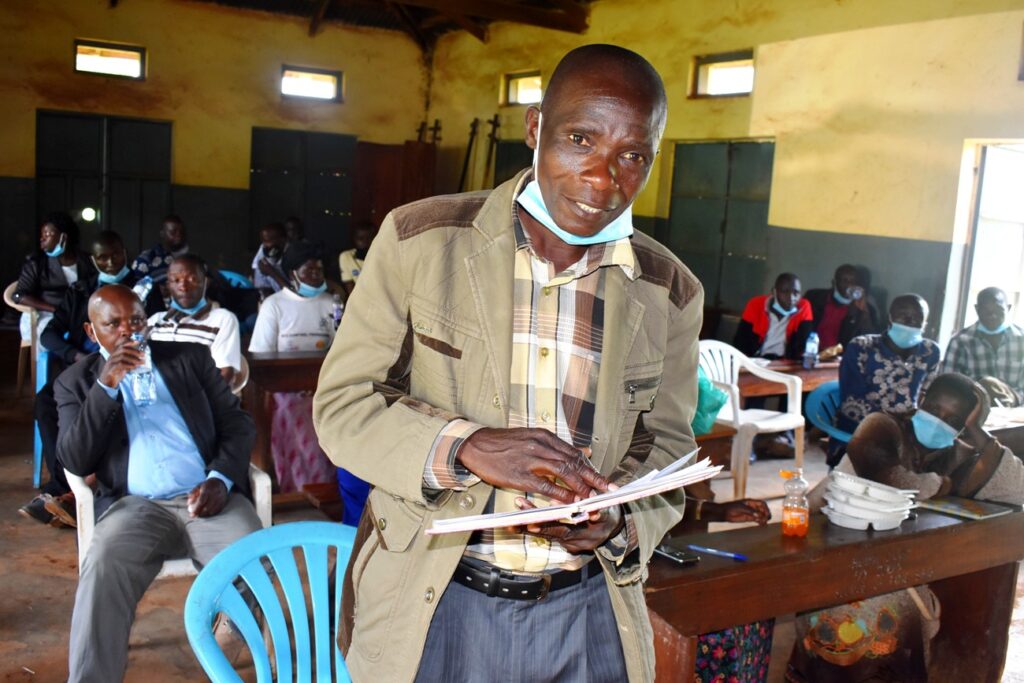
“We have learnt that we have been neglecting our crops which are nutritious and I request the university also to teach us how they are processing these products. The products are so nice and we request for some of these products to take them to the people at home so that they get an impression of the value of the neglected crops. We are going to mobilize our farmers to continue growing the neglected crops because we have learnt that they have important nutrients for our health”, Mr. Bainomugisa said.
The Health Inspector Kigorobya sub-County Ms. Happy Moreen hailed Makerere University for the good initiative noting that what they have developed is of good value to the people they serve.
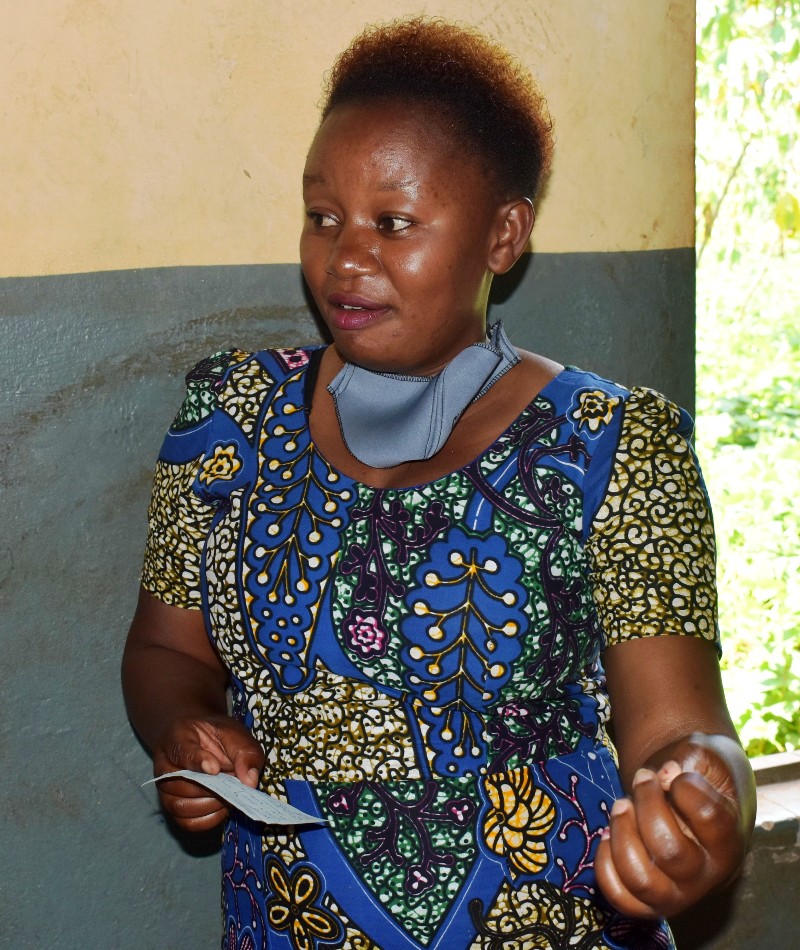
“Generally the instant porridge was nice but I believe if we add other food values like milk and little sugar it can be sweeter than without. If the salt in the instant soup can be reduced and prepared in a way that it is not very thick, it is the best. In addition to the people living with HIV/AIDS, All the products developed can also be helpful to the children. I urge the university to bring more researchers on board to consider also children of 6 months and above because we believe that when children are no longer on exclusive breast feeding, it is better to introduce them to other food values”, said the health inspector.
Jane Anyango is the Principal Communication Officer, College of Agricultural and Environmental Sciences (CAES)
You may like
-


Mak hosts First African Symposium on Natural Capital Accounting and Climate-Sensitive Macroeconomic Modelling
-


Uganda Martyrs Namugongo Students Turn Organic Waste into Soap in an Innovative School Project on Sustainable Waste Management
-
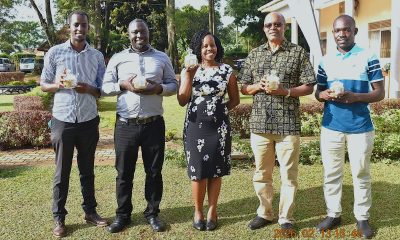

Makerere University Researchers Release New Soybean Variety, MakSoy 7N
-


Strengthening Global Partnerships to Advance Research, Innovation, and Graduate Training: Makerere University Hosts Delegation from the University of Warwick
-
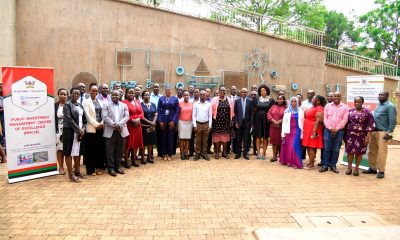

Makerere Hosts Second Cohort of MoKCC&MA Procurement Officers for E&S Safeguards Training
-
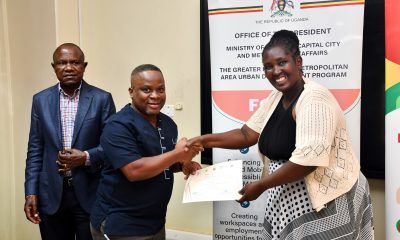

PIM Centre Awards Certificates to MoKCC&MA Officers after Safeguards Training
Agriculture & Environment
Mak hosts First African Symposium on Natural Capital Accounting and Climate-Sensitive Macroeconomic Modelling
Published
1 day agoon
February 20, 2026
African economies are increasingly exposed to climate-related shocks that threaten development gains, fiscal sustainability, and macroeconomic stability. From extreme weather events and biodiversity loss to the depletion of natural capital, climate risks are reshaping economic realities across the continent. Yet many macroeconomic frameworks used in public finance and planning continue to overlook climate and nature-related risks and the long-term benefits of resilience and adaptation investments.
To address this emerging reality, over 250 participants from Africa, Europe and beyond, convened at Makerere University – Kampala, on the 12th and 13th of February 2026, to participate in the First African Symposium on Natural Capital Accounting and Climate-Sensitive Macroeconomic Modelling.
Following the theme, “Climate-Sensitive Macroeconomics: Rethinking Growth in Africa’s Natural Resource Base, the hybrid symposium organized by Makerere University through the Centre of Excellence for Africa Climate-Sensitive Macroeconomic Modelling (CEACM) within the School of Economics, under the College of Business and Management Sciences (CoBAMS), the Environment for Development Initiative (EfD), and the Ministry of Finance, Planning and Economic Development (MoFPED) in Uganda, brought onboard ministers, leading economists and planners, researchers, policy makers, the academia, development partners, climate change experts and the media.
The Symposium being the first of its kind on the continent, reflected Africa’s growing determination to work collectively in confronting shared development challenges, building on recent momentum such as the formation of Pan-African Finance Ministers Forum for Climate Action (PAFMCA).
Featuring speeches and presentations from notable speakers and partners, a keynote address on Natura Capital Accounting and Climate Change Nexus in Africa and their impact on Fiscal Policy, panel discussions, expert opinions, and exhibition kiosks (World Café), the symposium presented a platform to strengthen Africa’s analytical and institutional capacity to integrate climate and natural capital considerations into macroeconomic and fiscal policy.
Vice Chancellor underscores the role of universities
Welcoming the delegates to Makerere University, the Vice Chancellor-Prof. Barnabas Nawangwe emphasized that universities must lead innovation and collaborative research efforts to support collective climate change mitigation across the continent.
In the same vein, he advocated for strong collaboration between universities in Africa and government Ministries. “Makerere’s collaboration with the Ministry of Finance, Planning and Economic Development, stands as a shining example of how academia and government can strengthen economic management,” he said.

Prof. Nawangwe revealed that the collaboration between Makerere University and the Ministry, has strengthened macroeconomic modelling, fiscal policy analysis, and technical capacity within government. In addition, the partnership led to the establishment of the Centre of Excellence for Africa Climate-Sensitive Macroeconomic Modelling, bridging academic scholarship with real-world policy application.
“We have jointly established the Centre of Excellence for Africa Climate-Sensitive Macroeconomic Modelling. The Centre (established in August 2025) is anchored within the School of Economics in the Department of Policy and Development Economics, under the Master of Science in Economic Policy and Investment Modelling, a program jointly facilitated by Makerere University, the Ministry of Finance, Planning and Economic Development and the Bank of Uganda,” he mentioned.
Climate and Economic transformation are inseparable
The Vice Chancellor highlighted the critical intersection between economic transformation and environmental sustainability, noting that economies in Africa, heavily dependent on natural resources, face unprecedented pressures from climate shocks, biodiversity loss, and environmental degradation. Convinced that economic growth cannot be pursued in isolation from climate and environmental realities, he stressed the importance of integrating natural capital accounting and climate considerations into national development strategies.
Prof. Nawangwe advocated for shared responsibility of universities, research institutions, and policymakers to develop innovative analytical tools, responsive policy frameworks, and strong institutional capacities that promote sustainable growth while safeguarding environmental assets for future generations.
The Vice Chancellor commended UN PAGE and the Global Green Growth Institute (GGGI) for funding the symposium, as well as, other stakeholders namely the European Union and the Coalition of Finance Ministers for Climate Action (CoFMCA), Ministry of Water and Environment (MoWE), National Planning Authority (NPA), Uganda Bureau of Statistics (UBOS), the National Environment Management Authority (NEMA) for being reliable partners.
Integrating Climate into Fiscal Policy
During the opening ceremony, the Minister of Finance, Planning and Economic Development, Hon. Matia Kasaija underscored the urgency of embedding climate considerations into economic planning.
“As Ministers of Finance, we are often confronted with difficult trade-offs. Our task is to balance the needs of today with sustainability for future generations,” said Hon. Kasaija, in a speech read by Hon. Henry Musasizi, the Minister of State for Finance (General Duties).

The Minister guided that traditional macroeconomic models focusing only on growth, inflation, and fiscal balance are inadequate in an era of climate shocks. He affirmed that African economies are facing interconnected challenges which directly impact economic growth. He stressed that traditional macroeconomic frameworks must evolve to systematically incorporate environmental degradation and climate shocks, whose consequences can no longer be ignored in policy analysis.
“For countries such as Uganda, whose development prospects are closely linked to natural resources and the climate-sensitive sectors, these challenges are not abstract. They affect livelihoods, public finances and long-term economic resilience,” he mentioned.
The Minister emphasized that natural capital accounting and climate-sensitive macroeconomic modelling are vital for valuing natural assets, assessing environmental costs, and guiding sound investment decisions.
Protecting Africa’s Natural Capital
Hon. Beatrice Atim Anywar, Minister of State for Environment, emphasized the urgent need to protect Africa’s ecosystems. “Africa stands at a defining crossroads. Our economies remain anchored in natural capital—forests, water resources, biodiversity, land, and ecosystems—which sustain life, generate fiscal revenue, and underpin development,” she said.
She warned that climate-related shocks are already undermining growth and public investment. “Floods, droughts, land degradation, biodiversity loss, and water stress are no longer distant risks. They are present realities, already affecting productivity and macroeconomic stability,” she said.
She emphasized the need for improved economic models that account for environmental and climate risks: “Traditional macroeconomic frameworks have not adequately captured climate risks or the long-term economic benefits of resilience and adaptation. This limits our ability to make informed policy decisions as Africa pursues economic transformation, energy security, and fiscal stability,” she stated.
Hon. Anywar highlighted collaboration with GIZ, Makerere University, and government ministries, which led to the development of the MONCAP (Model for Natural Capital Policy Assessment). “This tool is being used to assess natural capital assets for climate change, energy transition, and their linkages to the macroeconomy. It supports budgeting by estimating the cost of depleted natural capital assets,” she said.
“Water security, forest conservation, ecosystem restoration, and climate adaptation are not costs. They are investments in Uganda’s long-term economic stability, productivity, and prosperity.”
Stakeholders urged to transform climate threats into opportunities
Adam Sparre Spliid, the Deputy Head of Mission, Danish Embassy said: “Integrating climate risk and natural capital into our macroeconomics frameworks is not only academic exercise, it is a massive de-risking strategy for private investment. By bridging the gap between government policy and planning, academia and research, and the private markets, we transform climate threats into tangible opportunities.”
Sustainability includes youth, jobs and human well-being
Dr. Steven Stone, Chair of the UN PAGE Management Board, emphasized that sustainability extends beyond the environment to encompass youth, jobs, economic growth, and human well-being. “While the environment is Africa’s foundational source of wealth, sustainable development requires balancing ecological stewardship with economic progress, including income and employment for the youth which are critical priorities for countries such as Uganda.”
Dr. Stone highlighted that UN PAGE, originating from the Rio+20 Conference, supports climate-sensitive economic policy in Africa, emphasizing that dialogue, scenario-building, cross-sector collaboration, and strong partnerships are key to advancing sustainable, inclusive, and climate-resilient development.
Africa’s Wealth Declining
In the keynote address titled, Natural Capital Accounting and Climate Change Nexus in Africa and their Impact on Fiscal Policy, Paul Jonathan Martin, Manager of Environmental Operations at the World Bank for Eastern and Southern Africa, and a specialist with over 30 years in climate and natural resources, warned that Africa’s overall wealth is under threat due to declining renewable natural capital.
“Produced capital has increased by 20%, human capital by a third, but renewable capital has declined by 30%,” Martin said. “When combined, Africa’s overall wealth trajectory has been weakening since 2010.”
He stressed that natural resources must be treated as economic assets requiring systematic accounting: “Africa’s rich natural resources are fundamental for sustainable development,” he said.
Citing examples from Ethiopia and Kenya, he highlighted successful integration of natural capital into public investment and budget decisions. “In Ethiopia, there are payments for ecosystems and investment prioritization tools. In Kenya, natural capital accounting integration into budgets has strengthened public investments. Climate change has deep, cascading effects across sectors, but Africa has major potential to lead climate solutions,” he said.

Martin also highlighted the economic benefits of climate adaptation: “From 2020–2050, the cumulative effect of adaptation on Uganda’s GDP is positive. Without action, under a dry/hot climate future, GDP could significantly deviate from projected growth paths.”
Drawing on insights from over 70 country climate and development reports produced by the World Bank, the keynote speaker highlighted the profound macroeconomic impacts of climate change across Africa. He stressed the importance of integrating climate and natural capital into macroeconomic planning. He noted that Africa’s forests, water systems, and biodiversity are vital for sustainable development but face growing threats from climate change, environmental degradation, and climate-related disasters that undermine productivity, public investment, and economic stability.
He observed that traditional macroeconomic models often fail to capture the value of natural assets and regulating ecosystem services, which are critical to both economic stability and resilience but are largely excluded from GDP calculations.
Africa-Led Solutions
Prof. Edward Bbaale, Principal, College of Business and Management Sciences (CoBAMS), stressed the importance of developing African-led solutions. “We need to champion the Africa-led model. We need approaches that fit our unique context. Africa is not here to take in other frameworks blindly,” he said.
By supporting research, training, policy dialogue and modelling innovation, the Centre of Excellence for Africa Climate Sensitive Macroeconomic Modelling (CEACM) positions Makerere University as a regional hub for advancing climate-sensitive macroeconomic policy across Africa.
He highlighted CEACM’s capacity-building programs: “Our goal is to ensure African Ministries of Finance have home-grown expertise to integrate climate and natural capital considerations into fiscal and macroeconomic policy. This is critical for long-term resilience and sustainable development,” he said.
The Principal explained that establishment of independent research centres enables Makerere University to go beyond traditional academic instruction and focus deeply on societal challenges, particularly those related to climate change, environmental degradation, and biodiversity loss.

He reported that the Centre of Excellence for Africa Climate-Sensitive Macroeconomic Modelling is structured to advance methodological innovation, develop new data systems, and strengthen climate-sensitive macroeconomic tools that are tailored to the African context.
MONCAP Model for Policy Assessment
Dr. Peter Babyenda, a member of faculty at CoBAMS, demonstrated MONCAP (Model for Natural Capital Policy Assessment), which integrates climate and natural capital variables into fiscal and macroeconomic planning.
“MONCAP allows policymakers to estimate the economic cost of depleting natural assets such as forests, wetlands, and water resources. It helps simulate policy options and determine how investments in natural capital yield long-term benefits,” Babyenda said. “We came up with this model to aid the Ministry of Water and Environment. This model is open—you can extend it,” he added.

He highlighted capacity-building initiatives, including short courses and the Master of Science in Macroeconomic and Investment Modelling, designed to train economists to incorporate natural capital and climate into policy planning.
International Perspectives
Sweetman Liam, Ireland’s Finance Minister, highlighted the economic value of ecosystems: “There is a deeper value of landscapes in flood prevention and biodiversity. Decision-making was informed, and people started understanding economic value,” he said.
Prof. Chukwuone Nnaemeka of the University of Nigeria emphasized collaboration with national statistical agencies: “We coordinate with the National Bureau of Statistics to develop natural capital accounting metrics. Increase the use of Natural Capital Accounting in decision-making,” he stated.
Technical and Parallel Sessions
The afternoon session featured three parallel sessions focusing on Natural Capital Accounting Methodologies and Best Practices, Climate-Sensitive Fiscal and Economic Modelling, and Natural Capital Accounting and Model Uptake and Use.
Drawing on diverse expertise, the panels highlighted innovative approaches and demonstrated that natural capital is not an environmental afterthought, but a central pillar of sustainable economic and policy planning.
The first day of the African Symposium drew to a close with interactive exhibitions at the World Café, where case studies and practical demonstrations highlighted innovative approaches to integrating climate and natural capital into economic planning. Participants actively engaged in discussions and networking, forging collaborations that promise to advance climate-sensitive fiscal and development strategies across Africa, setting a strong and optimistic tone for the days ahead.
Agriculture & Environment
Uganda Martyrs Namugongo Students Turn Organic Waste into Soap in an Innovative School Project on Sustainable Waste Management
Published
2 days agoon
February 20, 2026
*****The students were supervised by researchers from the College of Agricultural and Environmental Sciences (CAES) at Makerere University, led by Prof. Fred Kabi.
The garbage challenge
With urbanization rates rising rapidly across Uganda, municipal solid garbage generation in the country’s cities is projected to increase by more than 40 percent by 2050. The growing burden of unmanaged garbage, particularly organic garbage, continues to pose environmental and public health risks, underscoring the urgent need for innovative and sustainable solutions.
It is against this backdrop that Senior Four students of Uganda Martyrs Secondary School Namugongo undertook a project to demonstrate how local market garbage challenges can be transformed into opportunities for sustainable development.

Addressing the garbage Challenge
As part of their academic project under the competence-based curriculum, the students were tasked with identifying real-world challenges within their communities and developing practical solutions using locally available resources. Through research and field observations, they identified poor garbage management, particularly the accumulation of organic waste at major dumping sites such as Kiteezi Landfill, as a critical issue.
At these sites, unsorted solid garbage often accumulates uncontrollably, sometimes leading to collapses that pose serious environmental and public health risks including water contamination by leachates, persistent foul odors, and disease outbreaks.

Rather than solely viewing solid market garbage as a problem, the students recognized its untapped potential within the biodegradable fraction of market garbage streams. Their innovative solution was to convert organic solid market waste (biodegradable garbage) into an industrial raw material for soap production by utilizing saprophagous Black Soldier Fly larvae (BSFL) to accumulate lipids and applying the scientific process of saponification.
Makerere University Support to the project
The students’ project was supervised by Prof. Fred Kabi together with technicians from the College of Agricultural and Environmental Sciences (CAES) at Makerere University. Prof. Kabi and his team have been actively researching on Black Soldier Fly Larvae (BSFL) as a bio-waste management technology capable of converting biodegradable solid municipal garbage and farm waste into valuable by-products such as organic fertilizers, animal feeds, soap, and biodiesel.
Working in collaboration with Ento Organic Farm Uganda Ltd, the researchers have demonstrated how insect-based waste conversion systems can support a circular economy by transforming biodegradable waste into industrial raw materials.

According to Prof. Kabi, the five young garbage entrepreneurs (students) began their project by collecting information on household garbage management practices. After analyzing the data, they engaged stakeholders along the garbage value chain to brainstorm all-inclusive, source-based waste management strategies.
“The students developed a solution that links efficient waste management at garbage generation source to support production of organic fertilizer, insect protein for animal feeds, and soap, which is only possible with biodegradable garbage,” Prof. Kabi explained. “This approach of the Competence Based Curriculum (CBC) for lower secondary schools supports the concept of taking Makerere University to the community of budding scientists while promoting sustainable community development through a circular economy.”
From Market Waste to Soap Bars
The Team leader, Ms. Ivy Stephanie Kitali explained the step-by-step scientific process behind the project. The students began by collecting organic waste from local markets, which was then shredded to prepare it for the larvae as a substrate. “Black Soldier Fly larvae were then introduced to the prepared waste. The larvae efficiently consumed the organic matter, greatly reducing its volume while accumulating lipids (fats) in their bodies. After maturation, we separated the larvae from the remaining waste, euthanized through blanching and dried it. Oil was then extracted from the dried larvae using ethanol as a solvent. This lipid-rich oil became the primary ingredient or raw material for soap production. To enhance the final product, the larvae oil was blended with minute quantity of sunflower oil before adding sodium hydroxide, initiating saponification, the chemical reaction that transforms fats and oils into soap,” she explained. The process ultimately yielded usable bars of soap derived entirely from what had once been discarded as unwanted market waste/garbage.

Building Skills and Sustainable Innovation
Beyond producing soap, the project provided students with hands-on training in scientific research, waste management techniques, bio-chemistry, and sustainable innovation. They gained practical exposure to insect-based biotechnology and learned how environmental challenges can be addressed through science-driven by entrepreneurship.
Agriculture & Environment
Makerere University Researchers Release New Soybean Variety, MakSoy 7N
Published
2 days agoon
February 19, 2026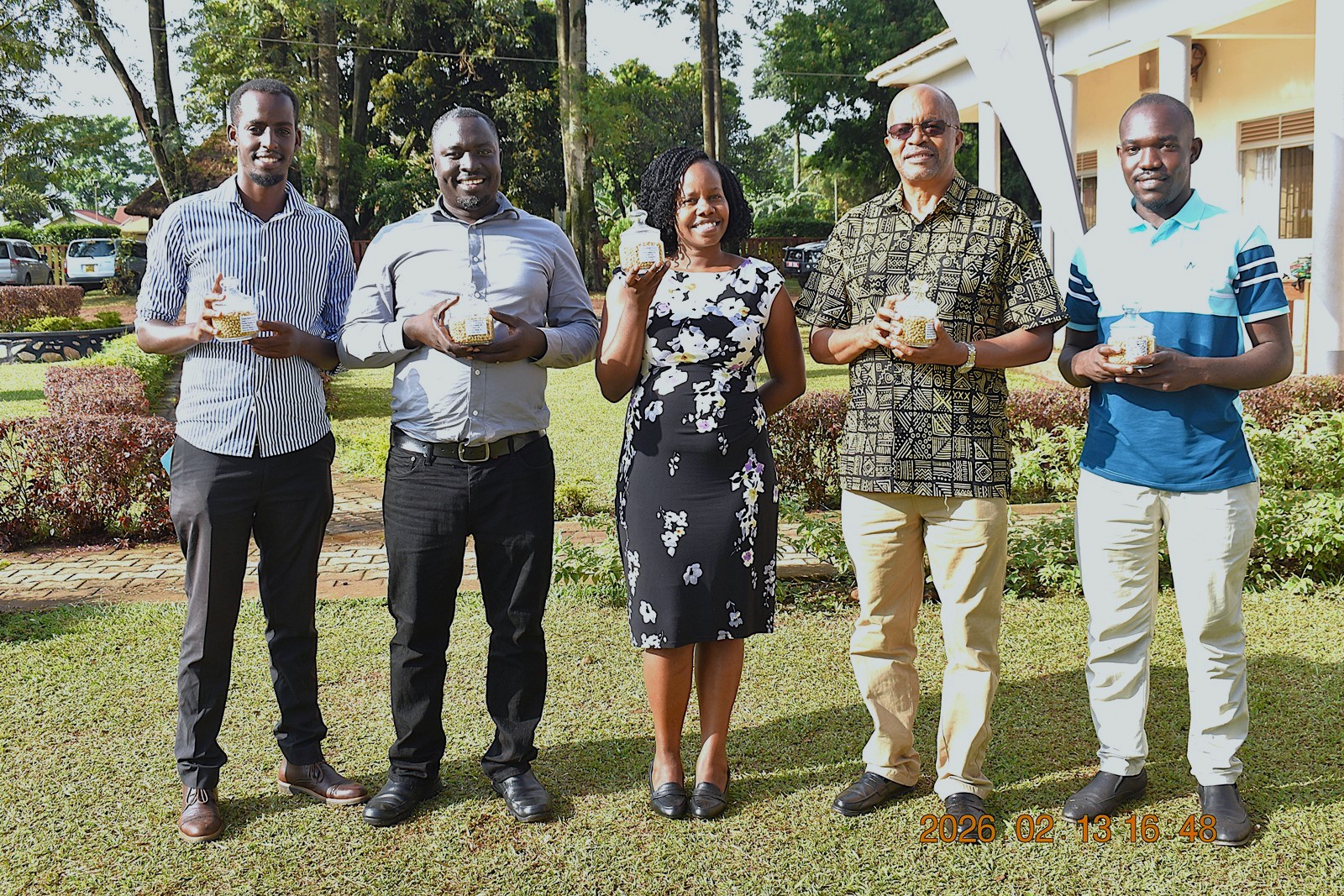
The National Variety Release Committee (NVRC) has officially approved Maksoy 7N, the latest soybean variety developed by the Makerere University Centre for Soybean Improvement and Development (MAKCSID) in the Department of Crop Science and Horticulture, College of Agricultural and Environmental Sciences at Makerere University. The approval was announced during the committee’s 47th meeting at the National Agricultural Research Laboratories (NARL) in Kawanda on 13th February 2026.
The NVRC, chaired by Dr. Joseph Kikafunda, is composed of stakeholders from the Ministry of Agriculture, Animal Industry, and Fisheries (MAAIF), research institutes, seed regulatory agencies, farmers’ organizations, and private seed companies. The committee evaluates new crop varieties for performance and traits before official release, helping to enhance national food security.
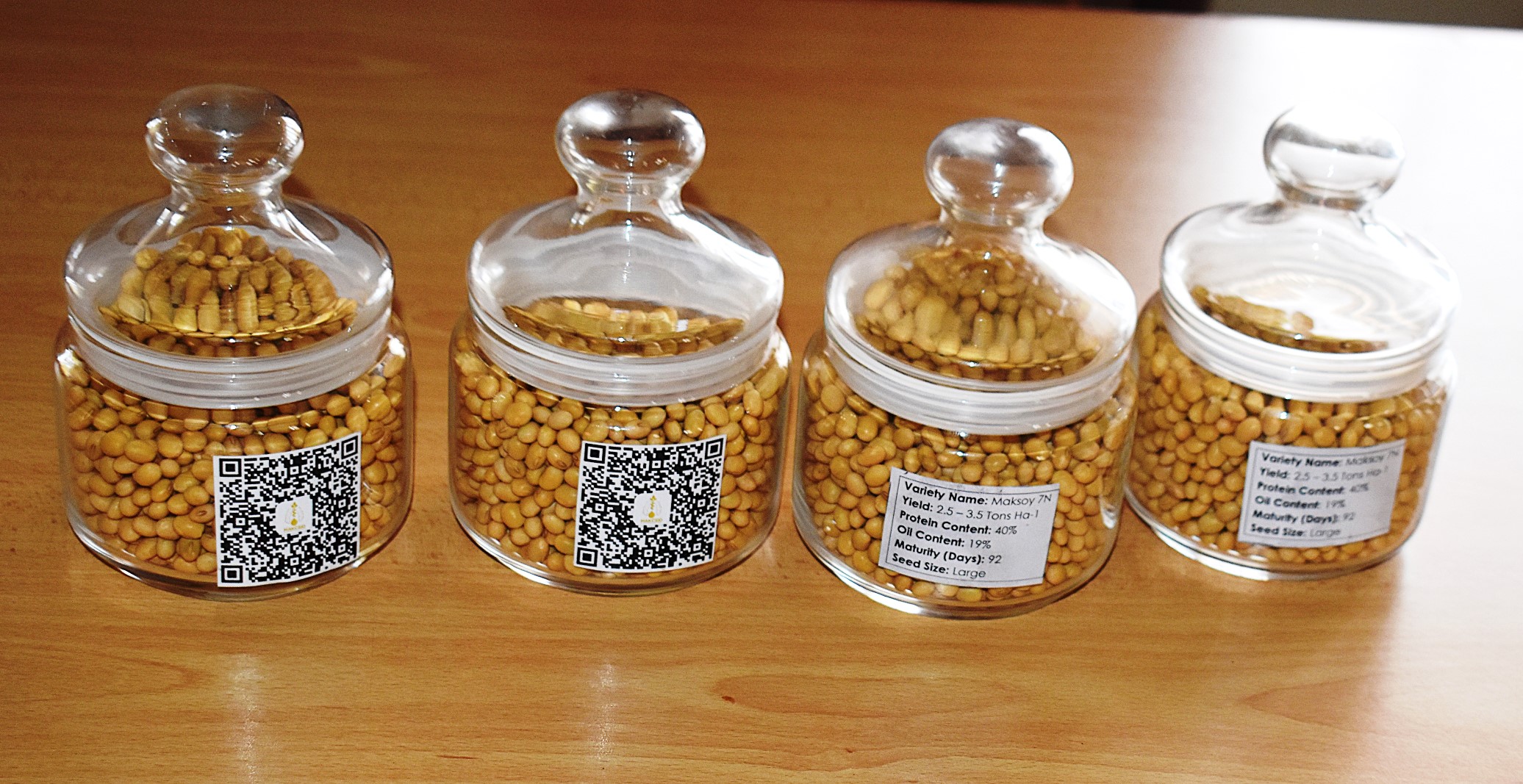
Rigorous Testing Confirms Superior Performance
MakSoy 7N, a cross between 6N and SG underwent extensive Distinctive, Uniformity, and Stability (DUS) testing across multiple seasons and locations in Uganda, including Kabanyolo (Wakiso), Nakabango (Jinja), Ngetta ZARDI (Lira), Abi ZARDI (Arua), Bulindi ZARDI (Hoima), and Mubuku Irrigation Scheme (Kasese).
The trials were conducted in accordance with the Seeds and Plant Act, Cap. 41 and the UPOV guidelines.
Results showed that the variety is clearly distinct from its closest reference, Maksoy 3N, in pod color, stem hair, and seed hilum, with uniformity meeting the 1% off-type standard, and stability confirmed across locations and seasons. On-farm trials were conducted to test performance under farmers’ management and to determine farmer preferences. Following these findings, the National Seed Certification Service (NSCS) recommended Maksoy 7N for release, providing farmers with a high-yielding and soybean rust-resistant variety.
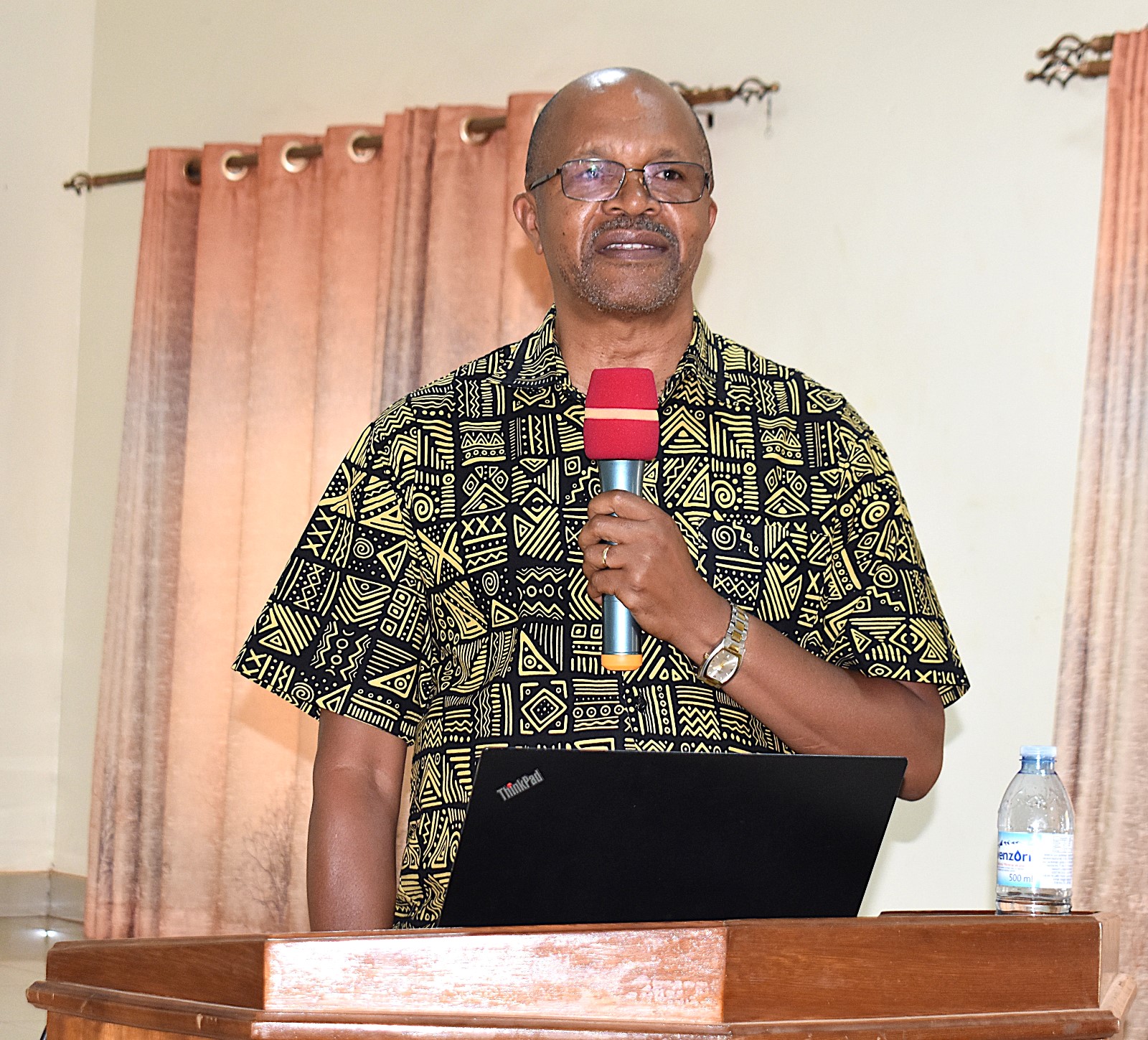
Key Reasons Behind the Development of MakSoy 7N
Soybean plays a critical role in nutrition and income generation, offering 40% protein and 20% oil. It is used in human food, livestock feed, agro-industrial applications, and soil fertility improvement, supporting climate-smart agriculture and reducing reliance on synthetic fertilizers. It also breaks pests life cycle if included in the cropping system.
Maksoy 7N was developed to address yield stagnation, rising disease pressure (including soybean rust), and growing national and regional demand for high-performing varieties. Advanced yield trials across six locations – Kabanyolo (Central), Nakabango (Eastern), Bulindi (Mid-West), Ngetta (Northern), Abi (West Nile), and Mubuku (Western) – demonstrated the variety’s strong performance in both multi-environment trials and participatory on-farm evaluations.
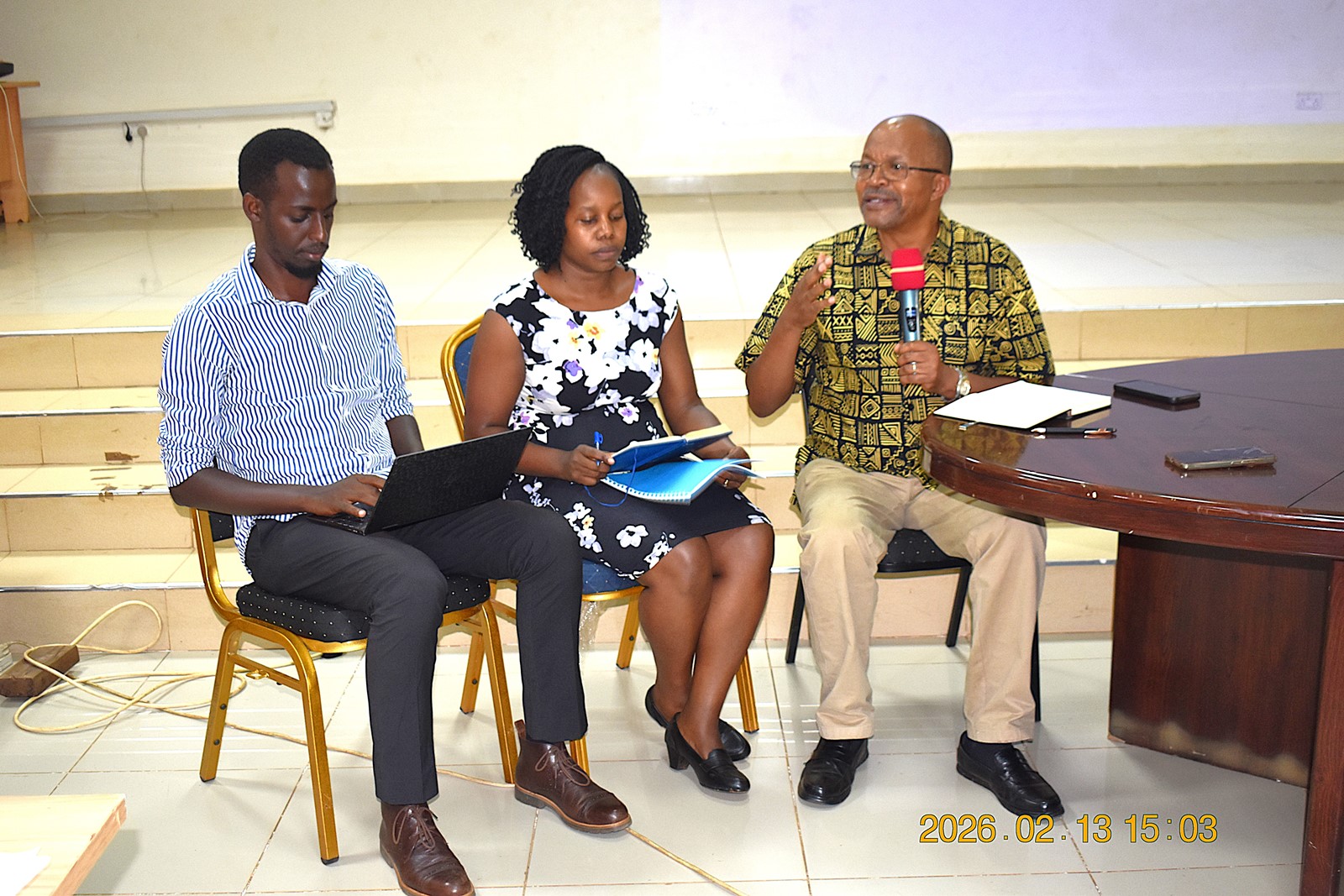
According to Prof. Phinehas Tukamuhabwa, Principal Investigator and Director of MAKCSID, Maksoy 7N demonstrates strong resistance to soybean rust and outstanding agronomic performance. The variety yields between 3-3.5 tons per hectare and matures in approximately three months. Maksoy 7N is expected to enhance national soybean productivity, increase smallholder farmer incomes, and strengthen Uganda’s soybean value chain.
Maksoy 7N joins six previously released high-yielding varieties (Maksoy 1N–6N). Impact studies by the Vegetable Oil Development Project (VODP) reveal that 93% of Ugandan soybean farmers plant Maksoy soybean varieties.
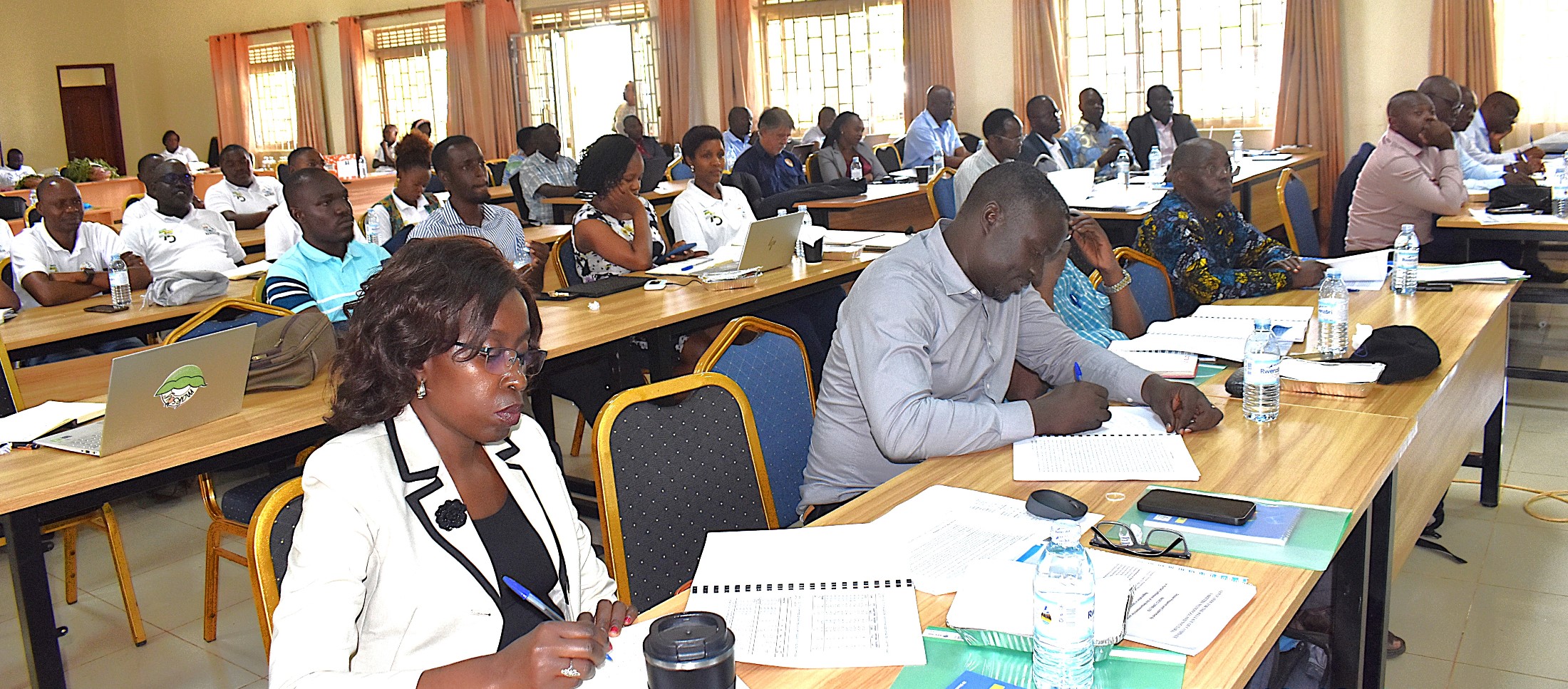
Appreciation to the partners
Prof. Tukamuhabwa expressed gratitude to the local and international development partners for their invaluable support to the project. These partners include the Ministry of Agriculture, Animal Industry and Fisheries (MAAIF), the National Oil Seeds Project(NOSP) and the International Fund for Agricultural Development (IFAD) who funded the research. Other research partners include the National Agricultural Research Organization (NARO), the Regional Universities Forum for Capacity Building in Agriculture (RUFORUM), Integrated Seed and Sector Development Uganda (ISSD Uganda), Soybean Africa Ltd, Makerere University Animal Science Laboratory, Soybean Innovation Lab, International Institute of Tropical Agriculture (IITA), and the host farmers who participated in the on-farm trials.
He also appreciated the Makerere University administration for the support extended to MAKCSID.
Honoring the Research Team
Addressing the meeting, Dr. Kikafunda, Chair of the National Variety Release Committee, praised the research team for their exceptional achievements and steadfast dedication to enhancing the nation’s food security. He emphasized the importance of their work in driving agricultural innovation and urged them to prioritize the rapid multiplication and widespread distribution of the new varieties, ensuring they reach the farmers and contribute to increased productivity and improved livelihoods across the country.
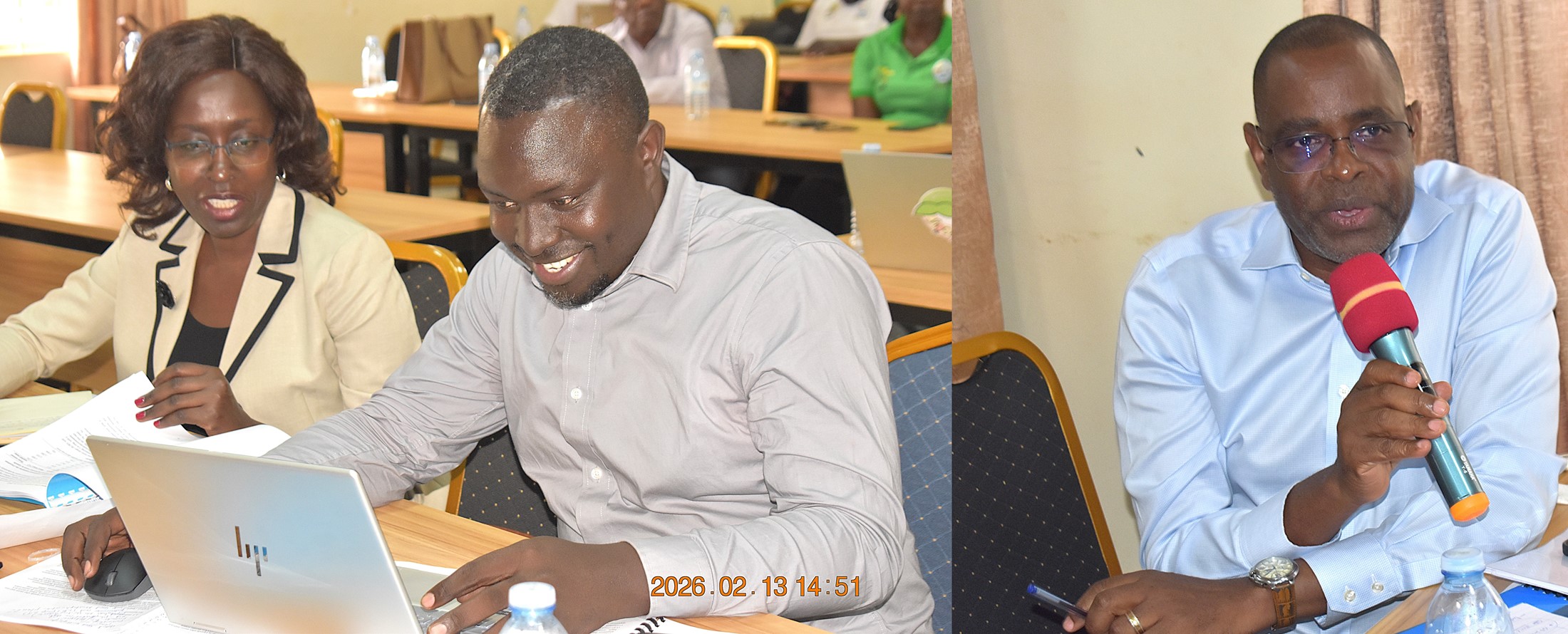
In her remarks, Dr. Mildred Ochwo Ssemakula, Head of the Department of Crop Science and Horticulture at the College of Agricultural and Environmental Sciences (CAES), Makerere University, and member of the National Variety Release Committee, lauded the team for their commitment in developing the new variety, MakSoy 7N. “This is the result of over eight years of dedicated effort. The previous variety, MakSoy 6N, was released in 2017. I deeply appreciate the team’s dedication to field activities. I also commend the former Principal of CAES, Prof. Bashaasha, for his contribution in making the MakCSID a reality, and the current Principal, Prof. Gorettie Nabanoga, for her continued support to the Centre.”
Dr. Ochwo further recognized the pivotal role of Makerere University, particularly CAES, in training critical human resources for the country, noting that most innovators and personnel in key agricultural organizations are graduates of CAES.
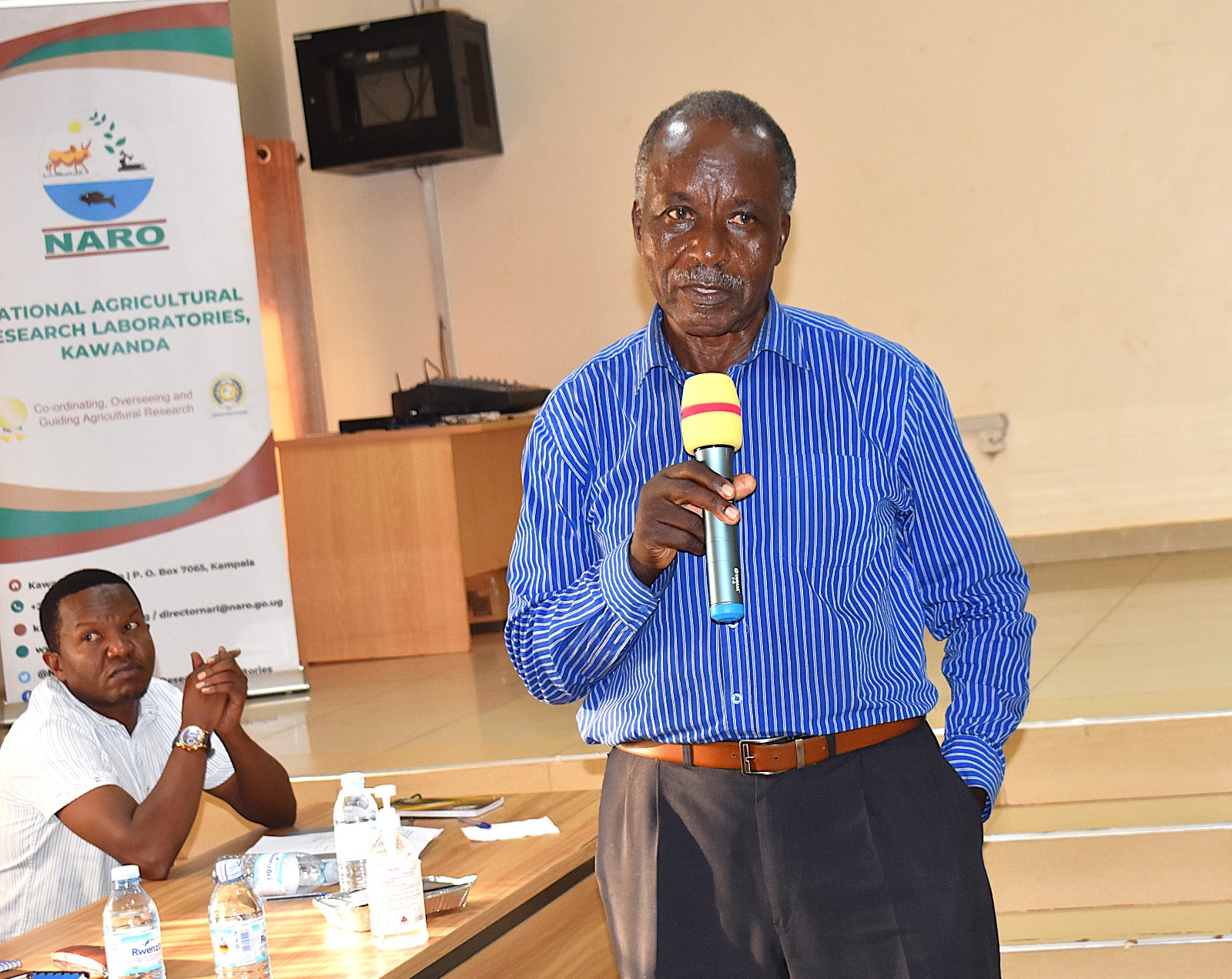
The Soybean research team includes:
- Prof. Phinehas Tukamuhabwa – Breeder & Team Leader
- Dr. Tonny Obua – Breeder
- Prof. Jeninah Karungi – Entomologist
- Dr. Geoffrey Tusiime – Pathologist
- Dr. Thomas Odong – Data Scientist
- Dr. Dennis Okii – Data Scientist/Germplasm Research
- Ms. Mercy Namara – Seed Scientist
- Mr. Alex Malaala – Agronomist
- Mr. George Yiga – Nursery Manager
- Mr. Jordan Uworthrwoth – Germplasm Maintenance
Approval of the Sweet Potato and Sorghum Varieties from NARO and NASECO
At the same event, the Committee approved three purple-fleshed sweet potato varieties – NAROSPOT 8P, 9P, and 10P – developed by the National Agricultural Research Organization (NARO). These varieties are credited for their high yields, strong disease resistance, and abundant provitamin A content. With a short growing period of just three to four months, these sweet potatoes allow farmers to achieve multiple harvests annually, boosting both productivity and profitability.
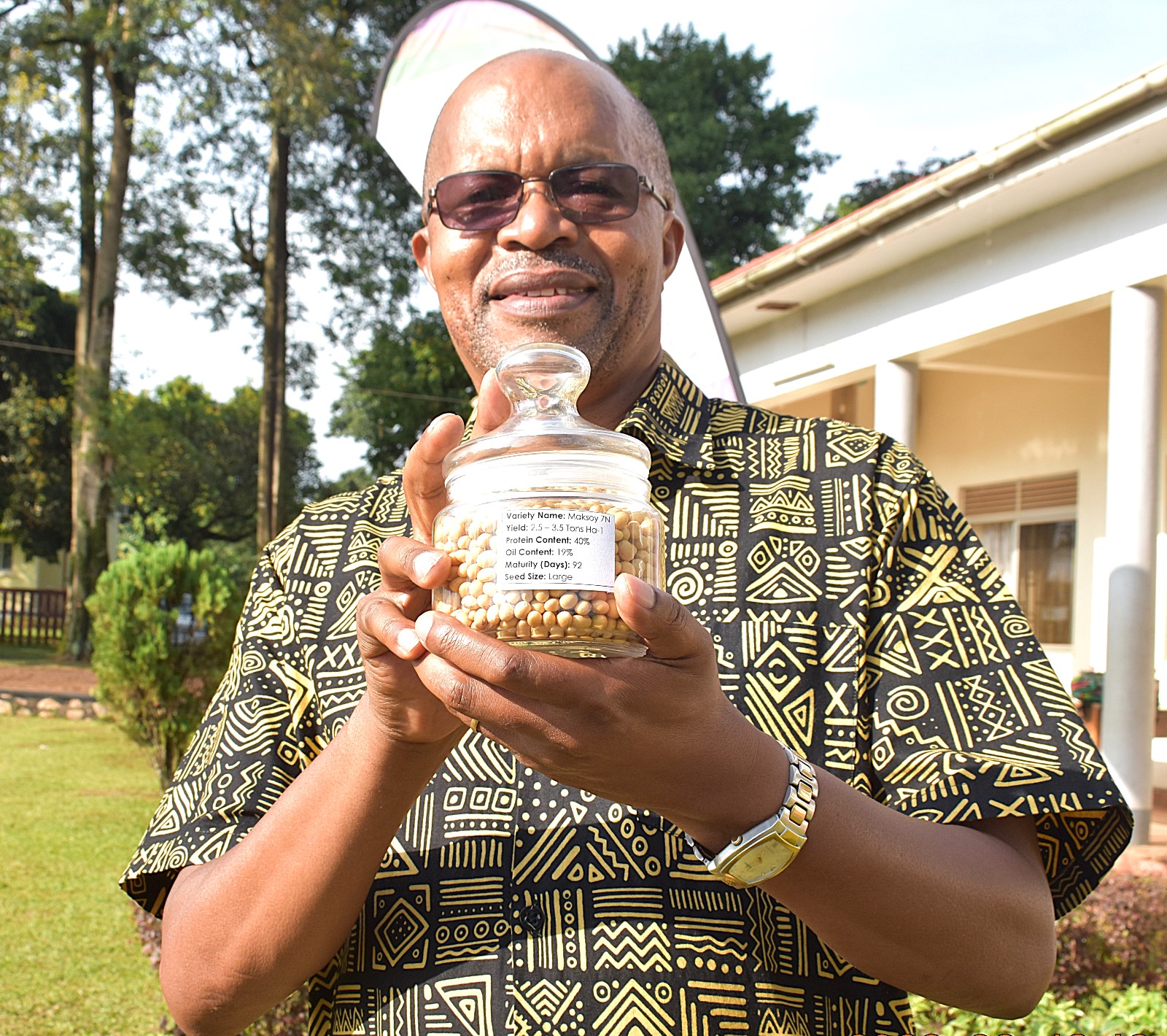
The committee also approved two high-yielding sorghum hybrid varieties, NS1 (Tongo) and NS5 (Tara), from NASECO (1996) (U) Ltd. These varieties are versatile, suitable not only for food consumption but also for livestock feed, bioethanol production, and brewing. Early reports indicate strong adoption rates among farmers, which is expected to reduce dependence on imported hybrid seeds and strengthen the local agricultural seed industry.
More photos from the event
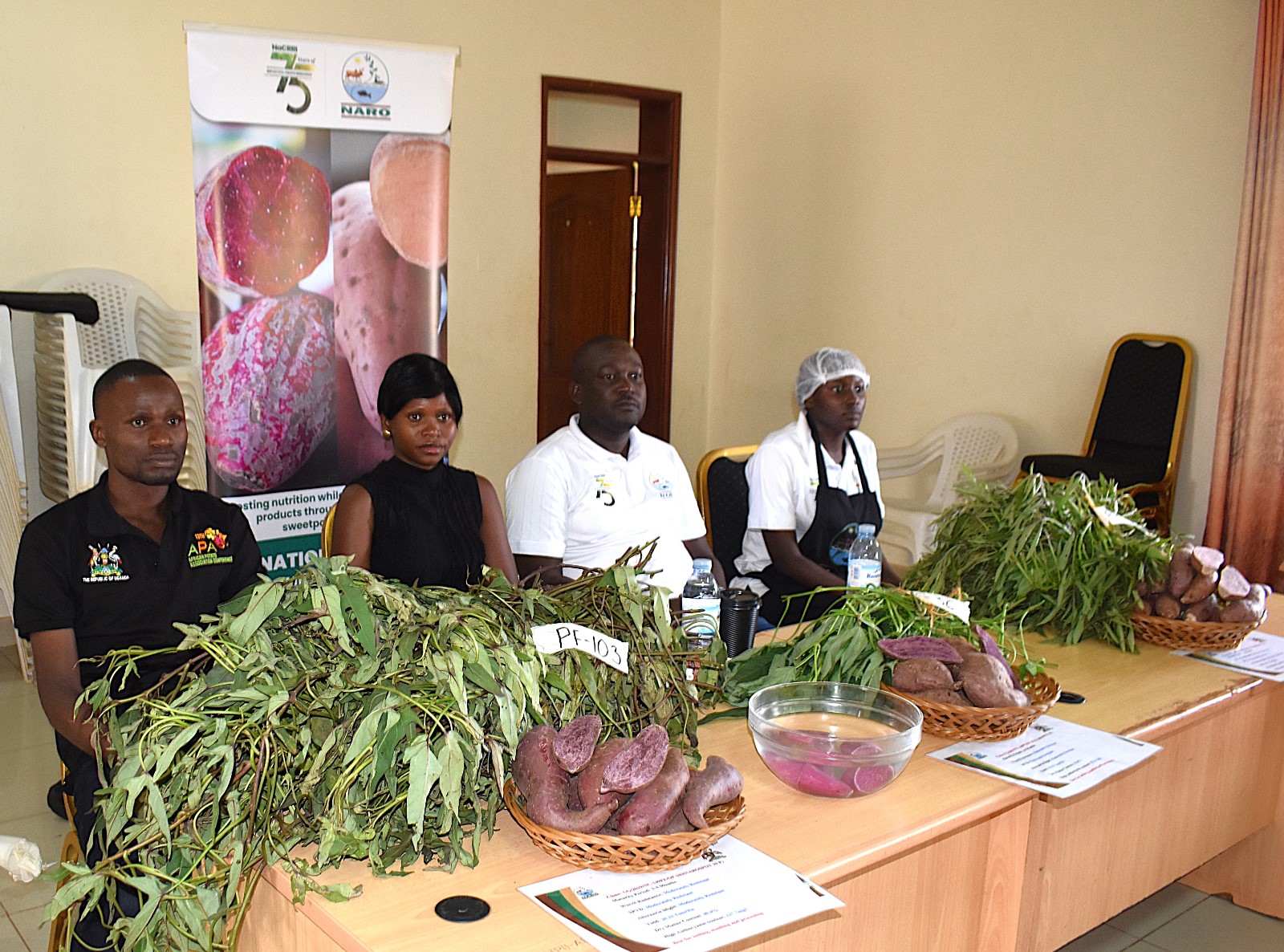
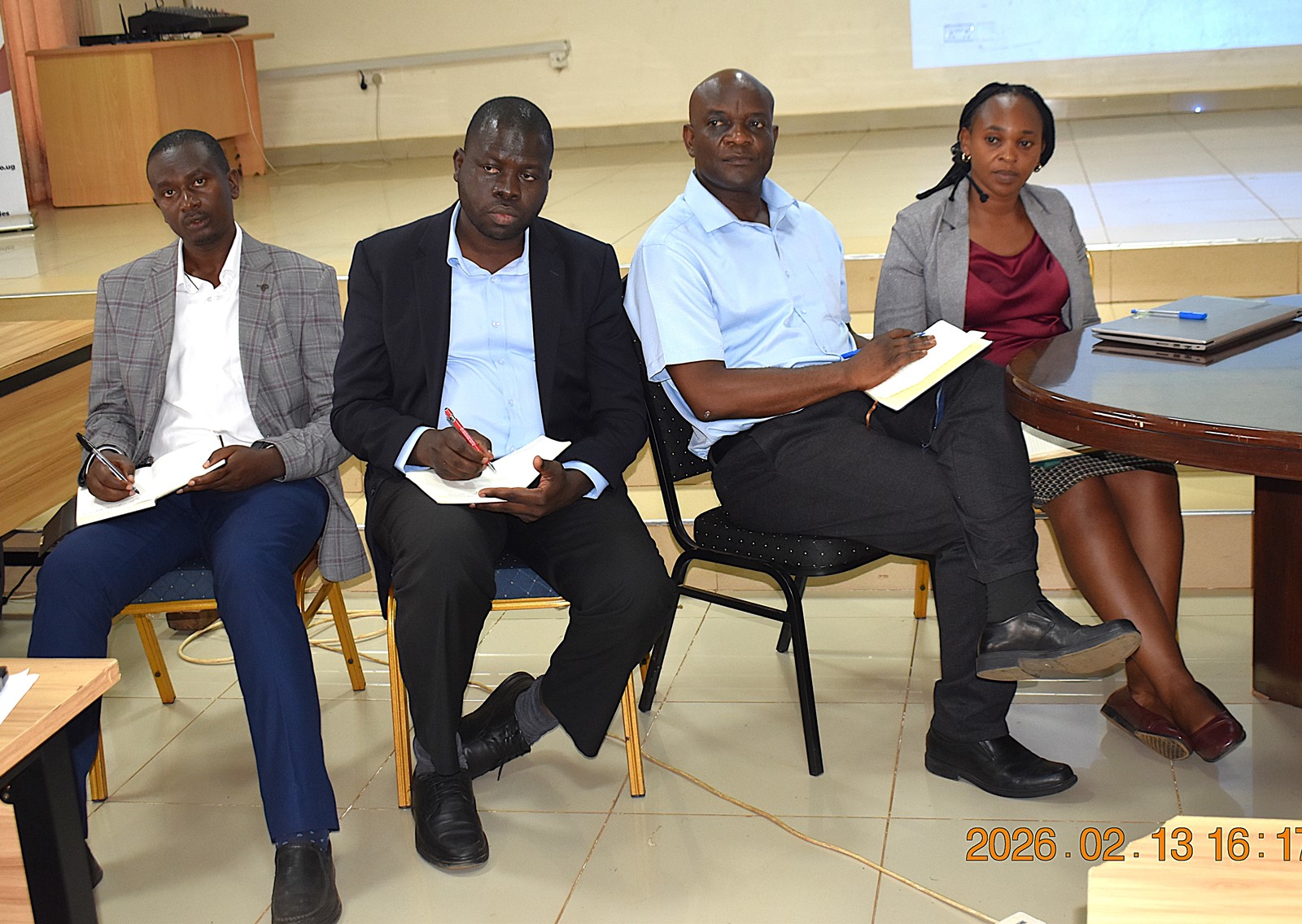
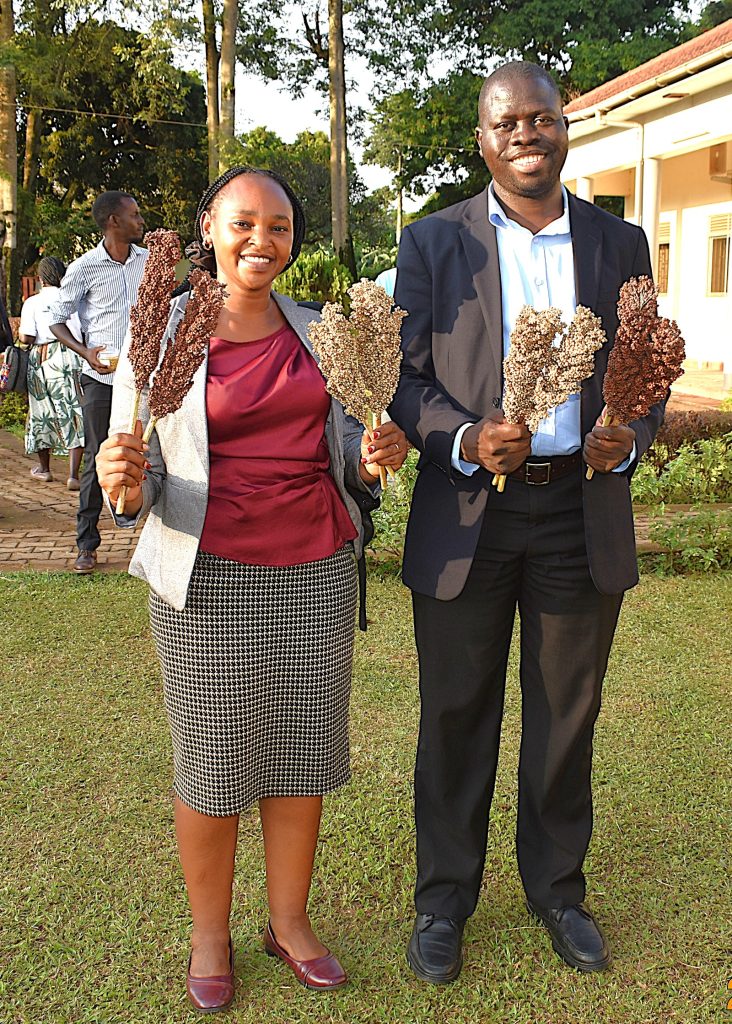
Trending
-

 General2 weeks ago
General2 weeks agoAptitude Exam (Paper 1) Results for the Mature Age Entry Scheme 2026/2027
-

 Health3 days ago
Health3 days agoUganda has until 2030 to end Open Defecation as Ntaro’s PhD Examines Kabale’s Progress
-

 Health2 weeks ago
Health2 weeks agoHow Jimmy Osuret Turned Childhood Trauma into Evidence for Safer School Crossings
-

 General2 weeks ago
General2 weeks agoFor Youth by Youth – Call for Second Cohort Applications
-

 General3 days ago
General3 days agoMastercard Foundation Scholars embrace and honour their rich cultural diversity
